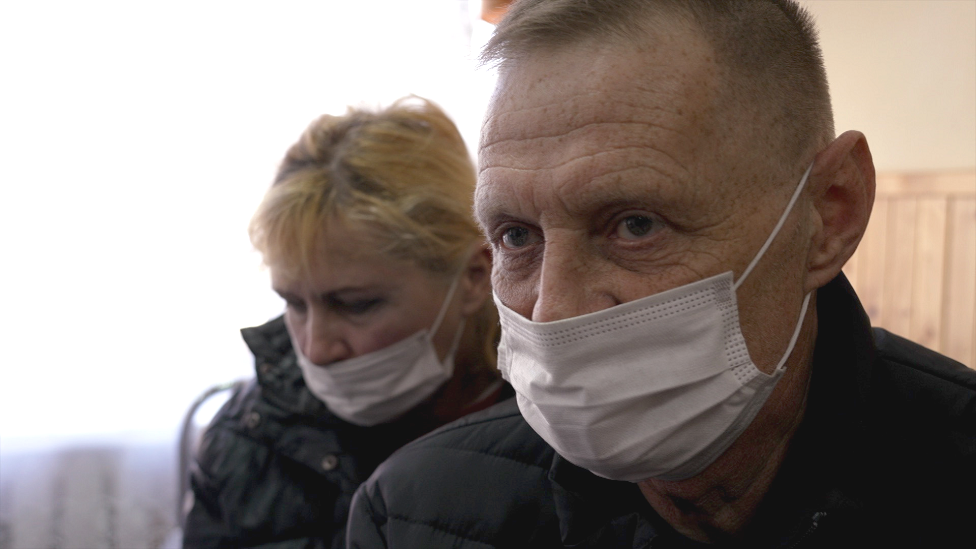'Mariupol is a graveyard': Evacuees recount terror of Russian assault
- Published
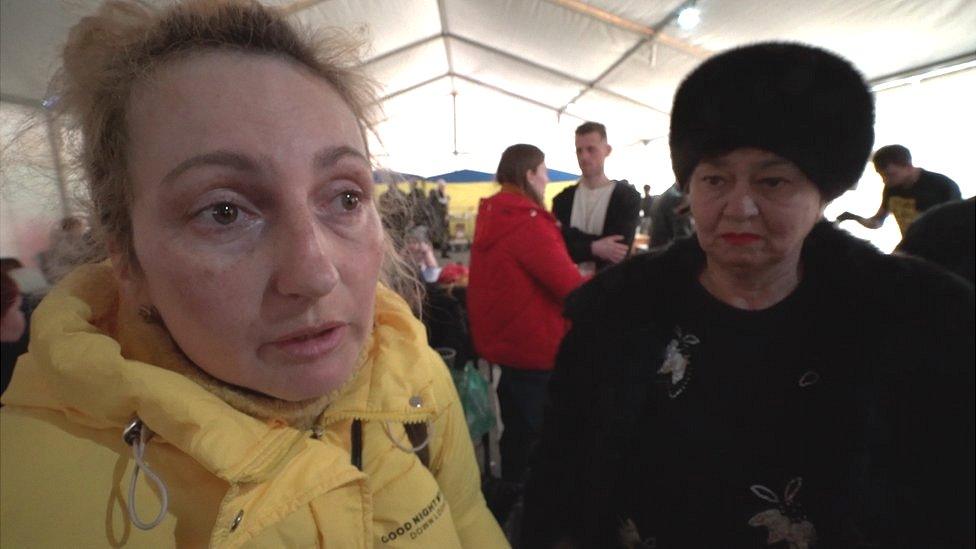
Yuliia, left, and her mother Tatiana, described how bodies lay in the streets of Mariupol
Civilians who have managed to flee Mariupol in recent days have described the increasingly desperate situation inside the besieged city, including accounts of bodies buried in shallow graves, looting by Chechen fighters, and starving residents being killed when they venture out of shelters to find water.
The evacuees' accounts are emerging as they reach the town of Zaporizhzhia which is acting as a hub for refugees.
They have risked journeys through Russian and Ukrainian lines that the International Committee of the Red Cross (ICRC) describes as an evacuation "from hell".
Waiting inside one aid facility was Yuliia, with her two daughters and her mother Tatiana. They finally managed to escape the city on Monday.
"There are starving people," said Yuliia, who spoke to the BBC on condition that her surname was not used, a frequent request from residents still concerned about their safety.
"People are having mental breakdowns. There is a woman we knew who hanged herself. People are being buried in the streets."
Her mother Tatiana said: "[There are] shallow graves, half a metre deep at best, with some earth on top. Dead bodies, all over the streets."
They said many of those with no choice but to remain in basements or wrecked apartment buildings are "the incapacitated" - a reference to elderly and disabled people.
"People were starving… There was no re-supply. There was no humanitarian aid whatsoever. We were cooking whatever we could on bonfires. No water, no gas, no electricity, no power," said Yuliia.
Their family survived underground for a month as Tatiana rationed the only food they had.
"Whatever we had in our fridges [when the invasion began], some porridge and butter, that's it. We were just bringing water from a well 3km away," Tatiana said.
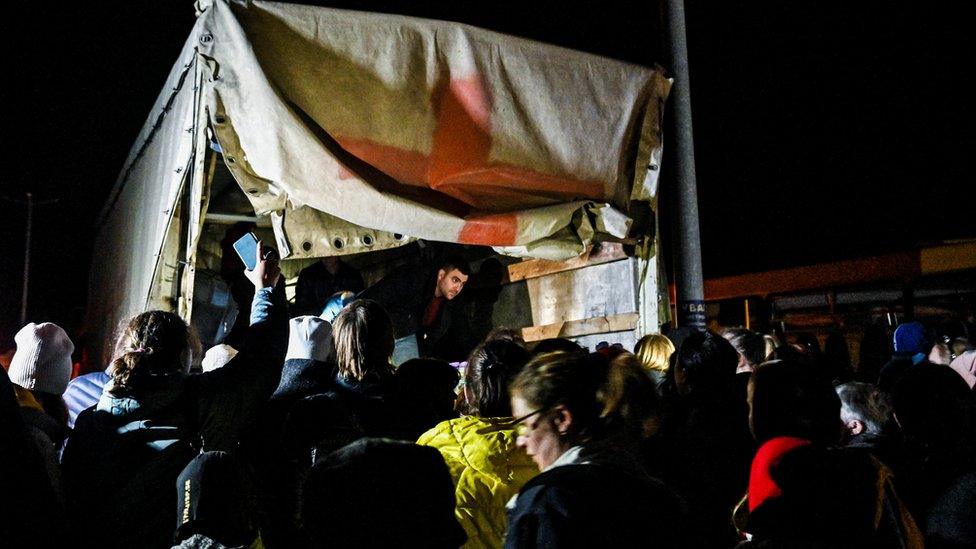
Many who managed to flee from Mariupol found themselves at aid stations in Zaporizhzhia
Her other daughter's family have not been able to leave the city. "There is no communication. We don't know what's happened to our relatives," she said.
This week, the UK Ministry of Defence warned that the humanitarian crisis was deepening as fierce fighting continued for control of the city and Russian forces blocked aid.
The chances of getting out diminished quickly for many residents, according to the accounts to the BBC. As the full extent of the siege took hold in early March, Russian-made Grad rockets "destroyed a lot of cars", said Yuliia.
"When we were in Mariupol, Chechens were looting. They were taking people's gold. It was becoming really dangerous, we heard they were raping women," she said.
"I was frightened for my kids and I realised we had to get them out in any way possible".
The BBC cannot independently verify the claims. Chechen militants loyal to Moscow have been fighting in Ukraine since the start of the invasion and are reported to have been heavily involved in the siege of Mariupol.
Elsewhere in Zaporizhzhia, aid workers have been finding homes and handing out money for evacuated families.
At one refugee staging centre, Liubov, aged 61, was waiting with her son Valerii.
She had a picture of their apartment block, eviscerated by shelling or an airstrike.
"On some days [there were] 50 planes, on other days 70. Each carrying two bombs. They were hitting the drama theatre, museums, hotels, apartment buildings. They didn't discriminate at all."
When the water supply stopped, Luibov said people had to choose between nothing to drink or a deadly venture outside.
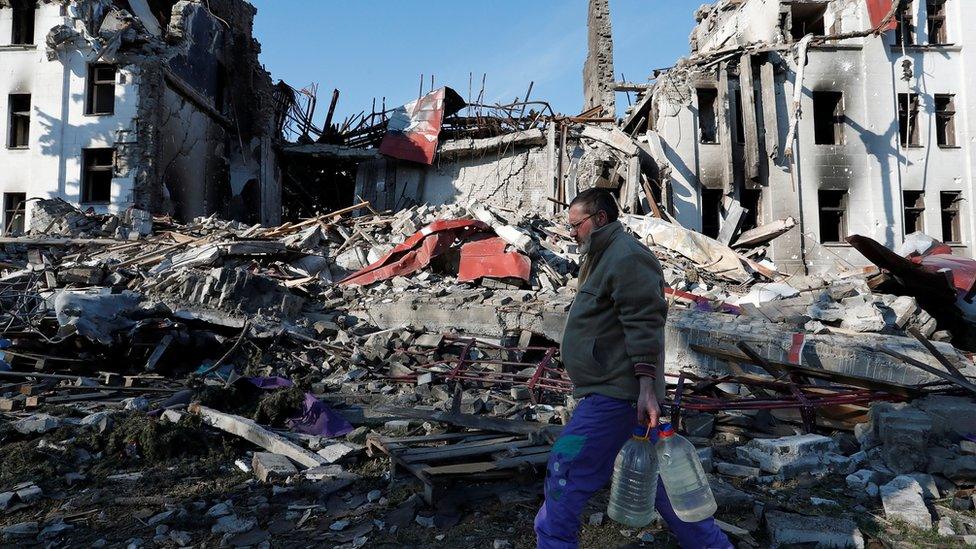
Trips for water are laden with danger; Luibov says one man who did so never came back
"Those people who tried to get water got killed. Some people managed to bring small amounts of water for cooking," she said.
"We didn't have any water [for weeks]... A man went to get some, he didn't come back."
She said there were up to 300 people in some shelters.
"Russians would take them out from those shelters, take photos of those people and say, 'we came here to liberate you'. People were crying, scared to say anything back. Scared they might get executed or shot.
"The Russians would say: 'See, these are the tears of joy. People are happy to be free from the fascists'."
In the refugee staging centre, Liubov wept as she displayed the pictures on her phone, returning again and again to Mariupol's nightmare: the need for mass burials of the dead.
"They bombed and destroyed Mariupol central market, so people dug a hole in the ground where they would be bringing bodies," she said.
"We were told they would be buried there. But we still don't know if that happened."
Liubov and Valerii managed to escape on 19 March. They reached the city of Melekino, also under Russian control, and were searched at a checkpoint where Valerii said the soldiers made him undress.
All the men in the centre reported the same thing. Russian soldiers looking for fighters strip them to their underwear searching for tattoos or rifle butt marks on men's shoulders.
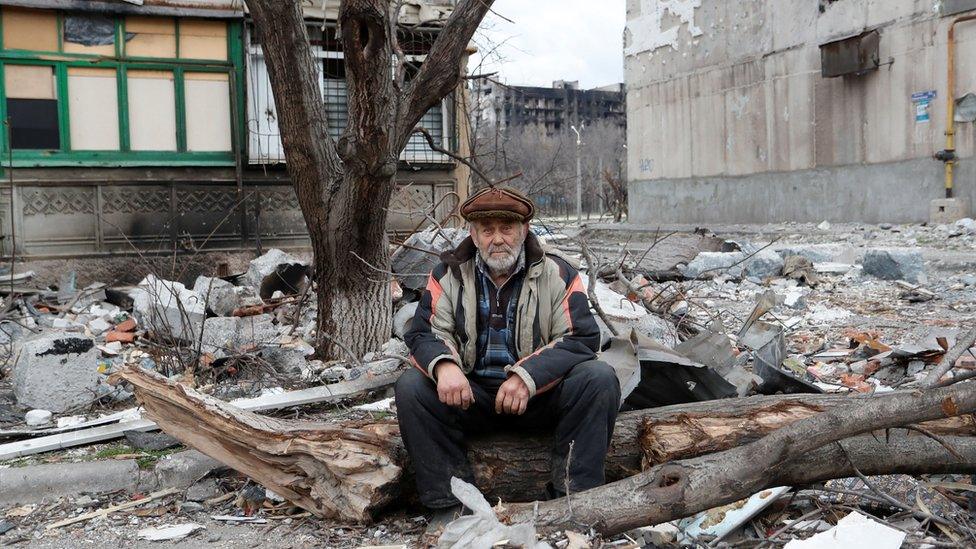
Mariupol lies in ruins, as seen in this photo of a local resident on 4 April
On Wednesday, eight buses carrying evacuees were escorted by the ICRC into Zaporizhzhia.
The arrivals had all the belongings they could carry. They looked exhausted and shell-shocked.
Some said the communication collapse in Mariupol is so bad they spent weeks not knowing whether the rest of the country had fallen to the Russians.
One of the first off the buses was Anna. She had made her own way to the town of Berdyansk about 50 miles (80km) away, the closest the ICRC buses could get to Mariupol.
"Mariupol is a graveyard now. All the neighbourhoods are covered in the graves of civilians," she said. "It was terrifying. People were sourcing water from a well."
"Unfortunately, not everybody got out. We have relatives in Mariupol who we haven't had communications with since the end of February. We don't know if they are alive or not," she added.
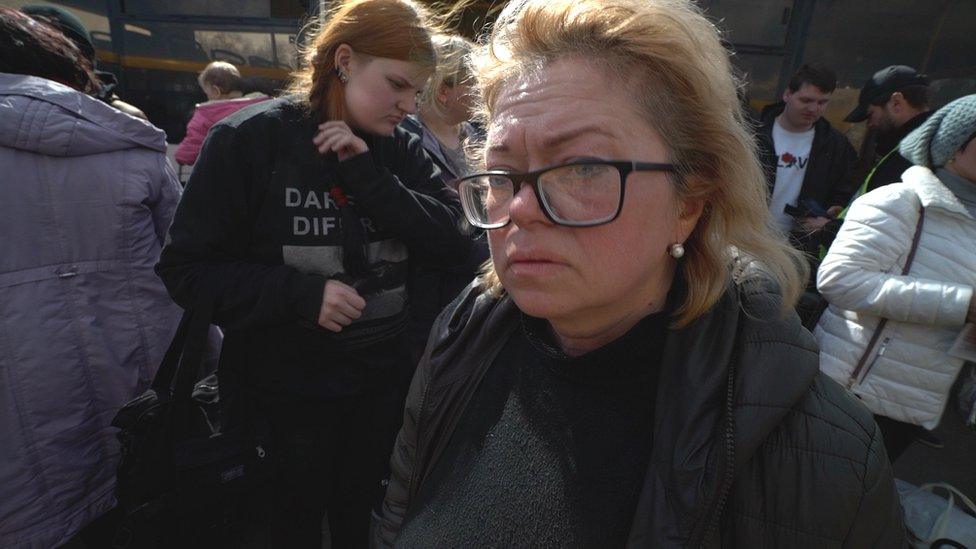
Anna described her city as a "graveyard"
Moscow claims it has evacuated civilians held by "Nazi battalion fighters" in Mariupol. Ukraine says up to 40,000 people have been forcibly deported to Russia, with some held in "filtration camps" where they are investigated.
Many people have lost contact with close relatives and have no way of knowing whether they have survived.
Yevhenii Lysenko was also waiting at a refugee centre in Zaporizhzhia. He left Mariupol for a work trip before the war started. The invasion happened the day he was due to return home.
Watch: Drone footage shows extent of devastation in the city of Mariupol
He is stuck in Zaporizhzhia, and hasn't heard from his wife Svetlana since their last contact in early March.
"The message [from her] was we're being bombed," he said.
He scrolled through pages of text messages to his wife, asking where she was, whether she was safe.
"Last time I talked to her was 2 March. So for over a month I haven't spoken to her. I don't know what happened to her. I don't know whether she's alive."
He had considered trying to make a trip to Mariupol, back across Russian lines.
"[But] if I get caught by the separatists they're going to hand me a rifle and tell me to go and shoot my own people… or execute me if I refuse to do that," he said.
I asked what he knows about his home.
He replied: "It doesn't exist anymore, it's been destroyed by shelling or an airstrike. So essentially there is nowhere for me to return to."
Related topics
- Published7 April 2022
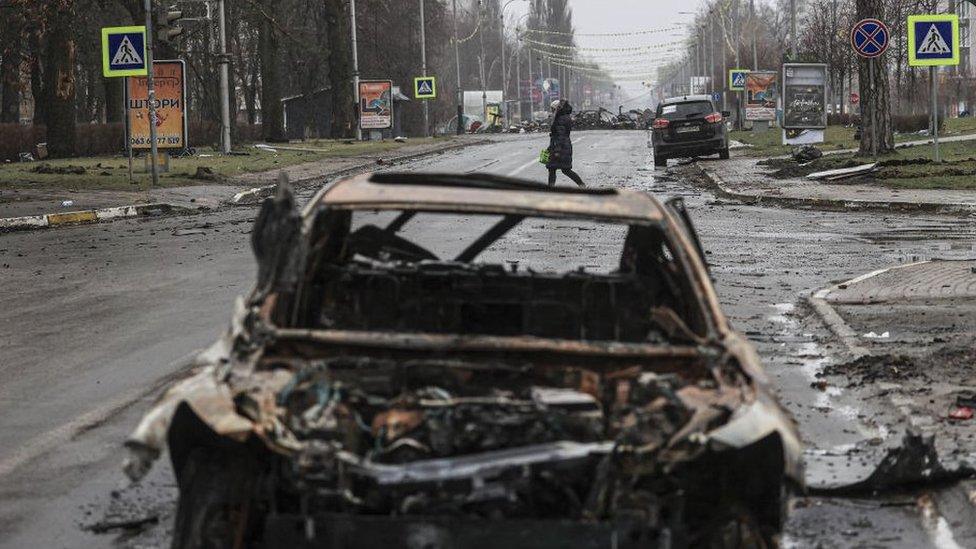
- Published7 April 2022
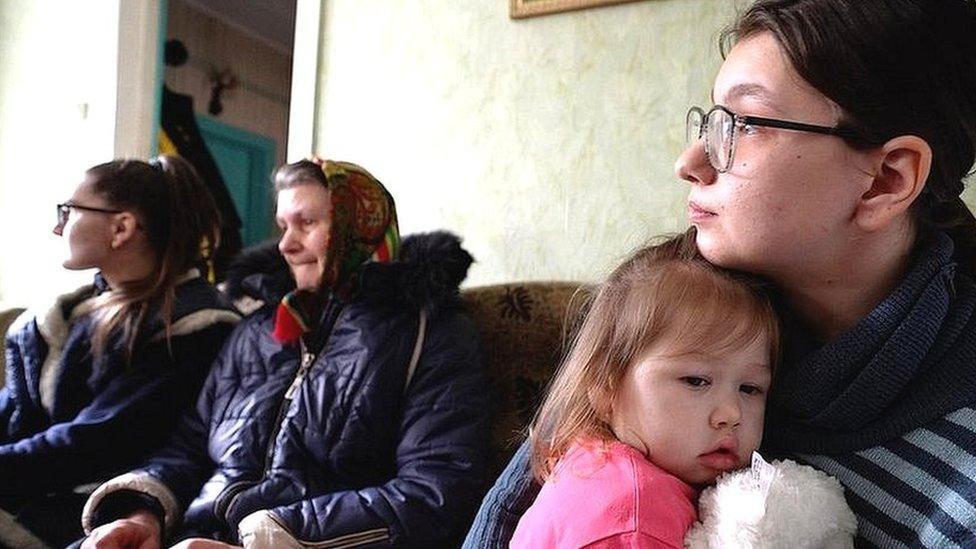
- Published7 April 2022
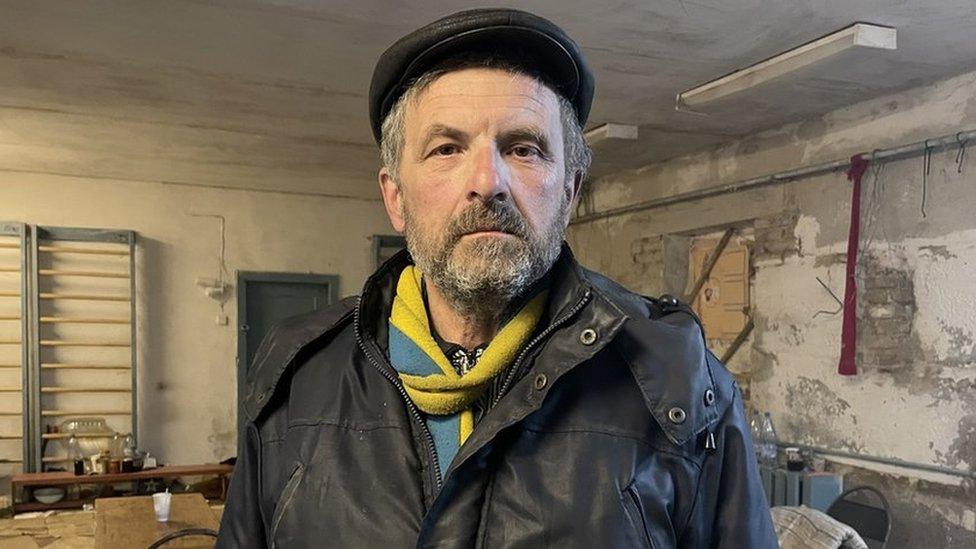
- Published13 April 2022
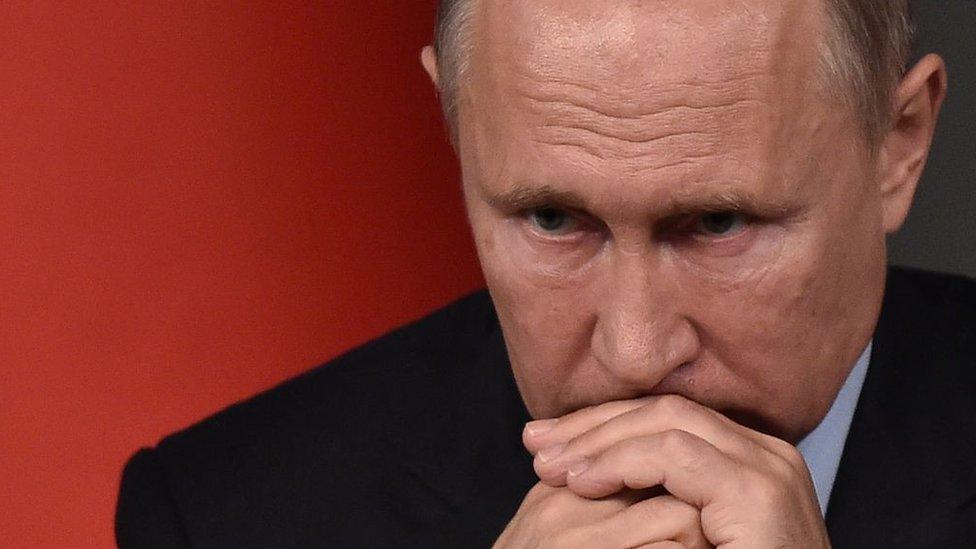
- Published31 March 2022
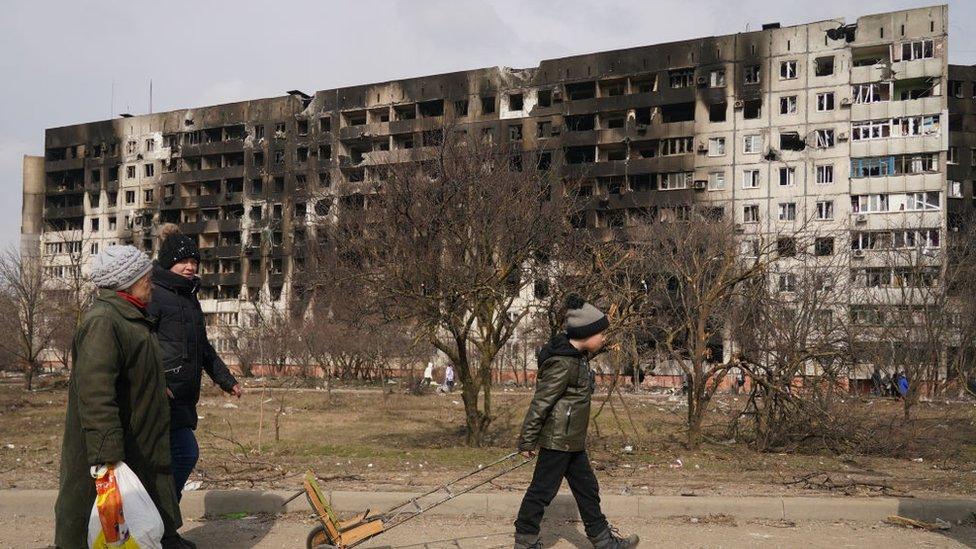
- Published31 March 2022
